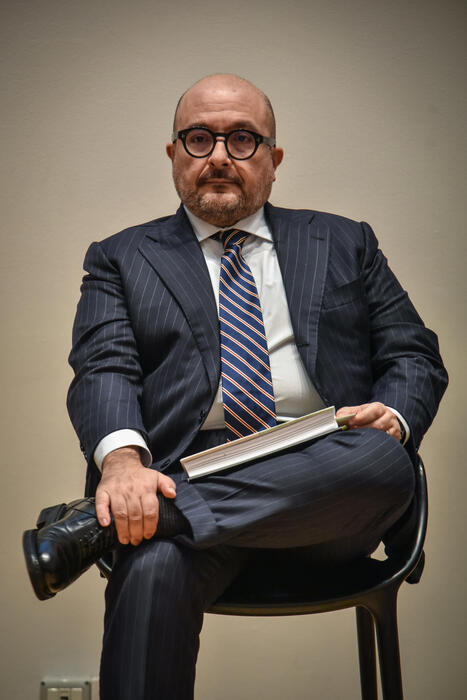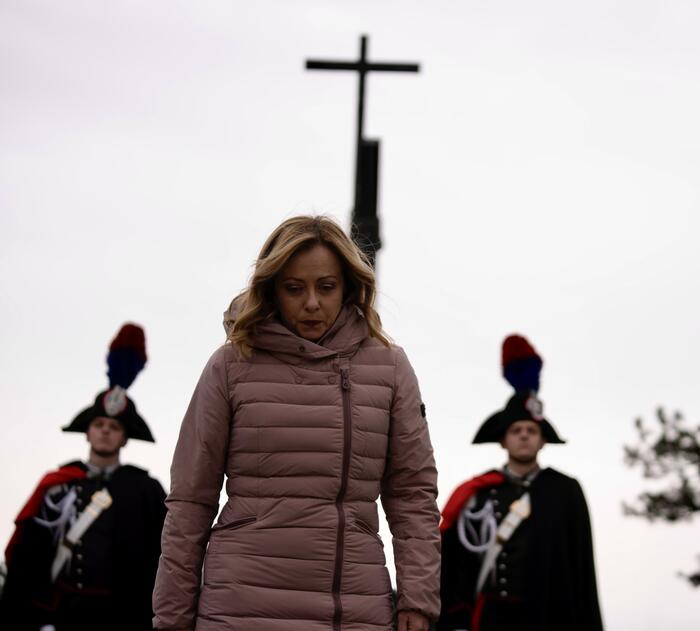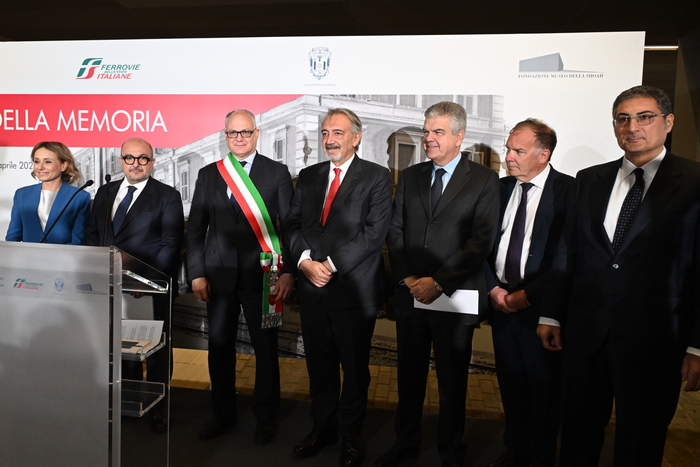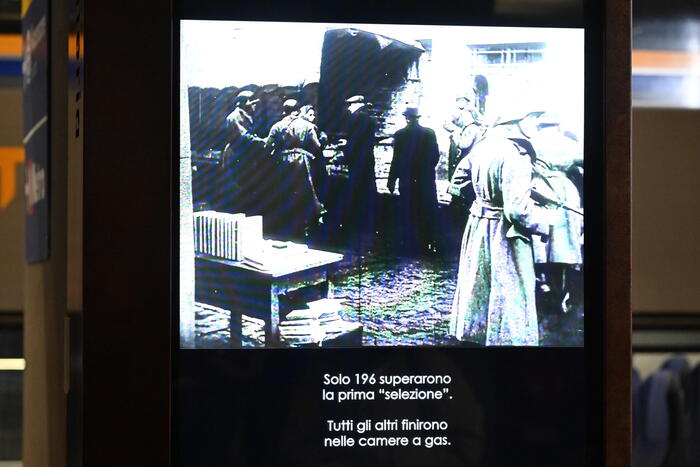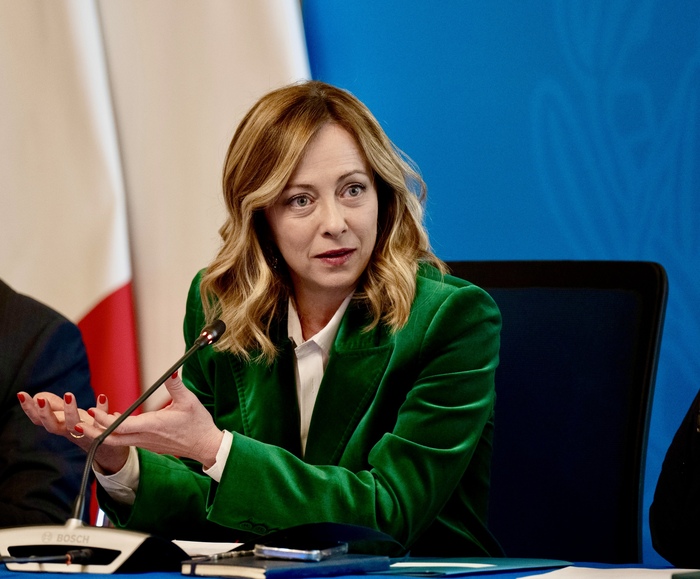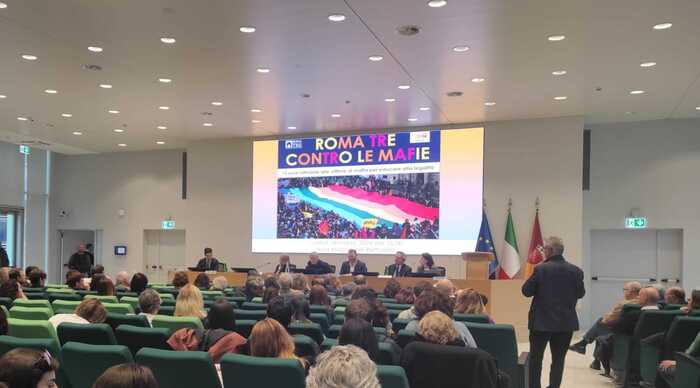"February 10 is the day dedicated to remembering the horror of the Foibe and the Julian-Dalmatian exodus. I am very respectful of the autonomy of art and the cultural work of artists. But as a citizen, before being a Minister, I think it would be a important gesture that the Sanremo Festival would dedicate a moment, tomorrow evening, to the Day of Remembrance".
This was stated by the Minister of Culture,
Gennaro Sangiuliano,
appealing to the organizers of the Sanremo Festival to dedicate a space, within the event, to the day of remembrance of the Foibe and the Julian-Dalmatian exodus.
The minister's proposal is aimed at "not forgetting all the Italian men and women who lost their lives in the Foibe or who were forced to flee their prior homes and their own land. Men, women, old people and children who - the Minister recalls - do not they had no fault".
"Cultivating memory is the only antidote to ensure that tragedies like these never happen again," says Sangiuliano.
The request to remember the horror of the Foibe in Samremo also comes from Fdi and FI.
"There are so many crucial issues and none is less important than another. We'll see what to do tomorrow."
Amadeus said it
in the morning press conference, answering those who asked if the festival will dedicate a space to the memory of the victims of the Foibe, tomorrow, on Remembrance Day.
"It's like when you remember names in music. We can't do so many during the course of the festival. We'll see what to do".
"I know the theme of the Foibe well. Having been a journalist for thirty years, I think I was one of the first to address it". Thus the Minister of Culture Gennario Sangiuliano
intervenes on the eve of Remembrance Day at the presentation of Senator Roberto Menia's book "February 10. From sinkholes to exodus" (ed. Pages).
"I agree with Benedetto Croce who said that history is always a contemporary fact, not a mere recollection of the past - continues the minister -. History is a sort of toolbox in which to find the elements to interpret the contemporary world and in some cases often also prefiguring the future. We must cultivate the memory of these historical facts that have been omitted for a long time so that these horrors do not repeat themselves and violence can be expunged from the civil coexistence of peoples".
But, he adds, "memory should not be used instrumentally and politically.
History must be studied and deepened but there are no series A deaths and series B deaths, there are no series A violence and series B violence. today it is quite assimilated into the national community.
Tomorrow there will be national demonstrations and President Mattarella has recalled and actively participated in the initiatives several times.
There has been a long time with a complete omission though.
I thank all those who have reconstructed this historical memory grain by grain - he adds - because when I was in high school and then at university these facts did not exist.
Like they never happened.
Yet the dead were there, they were in the Foibe.
And Italian foreign policy persisted in courting Tito.
Even knowing who Tito was, a massacrer".
"The drama of the Foibe and the Julian Dalmatian exodus is a tragedy that marks our history
, and for this very reason it is even more necessary and important to celebrate Remembrance Day: memory not only has the task of preserving the historical truth of the past but can and must shape the future, helping us not to repeat the mistakes and horrors we have left behind".
Thus, on the eve of the Day of Remembrance established in 2004, the president of the Emilia-Romagna Region,
Stefano Bonaccini.
It is "a warning that is even more important in a historical moment like the one we are living in, in which in the name of borders people kill and die every day in Europe, just think of the war in Ukraine following the Russian invasion, and in the world".
The memory of the "painful exodus from the lands that were Italian today belongs, I believe, to all Italians and is an important sign of our national community which tends towards a shared history.
As long as the story of the sinkholes and the story of the exodus did not belong to the entire national community, I believe that we could not speak of a shared memory.
Today this gives me hope for a process that needs to be completed but is already underway"
.
In these sinkholes there are "innocent victims", killed "for reasons of ideology or more simply because they were Italian. This is the real cause that unleashed the Tito hatred, the hatred of the communists who had - for heaven's sake - won the war; they had motives for revanchism and unleashed here a bestial hatred that is rightly remembered today for what it was not only by us but also by the countries that are now close to Italy. They remember as something that must never be repeated "that hatred" which there has been among the peoples and the hatred there has been towards the Italians," said La Russa
La Russa on her knees in front of the Foiba di Basovizza

